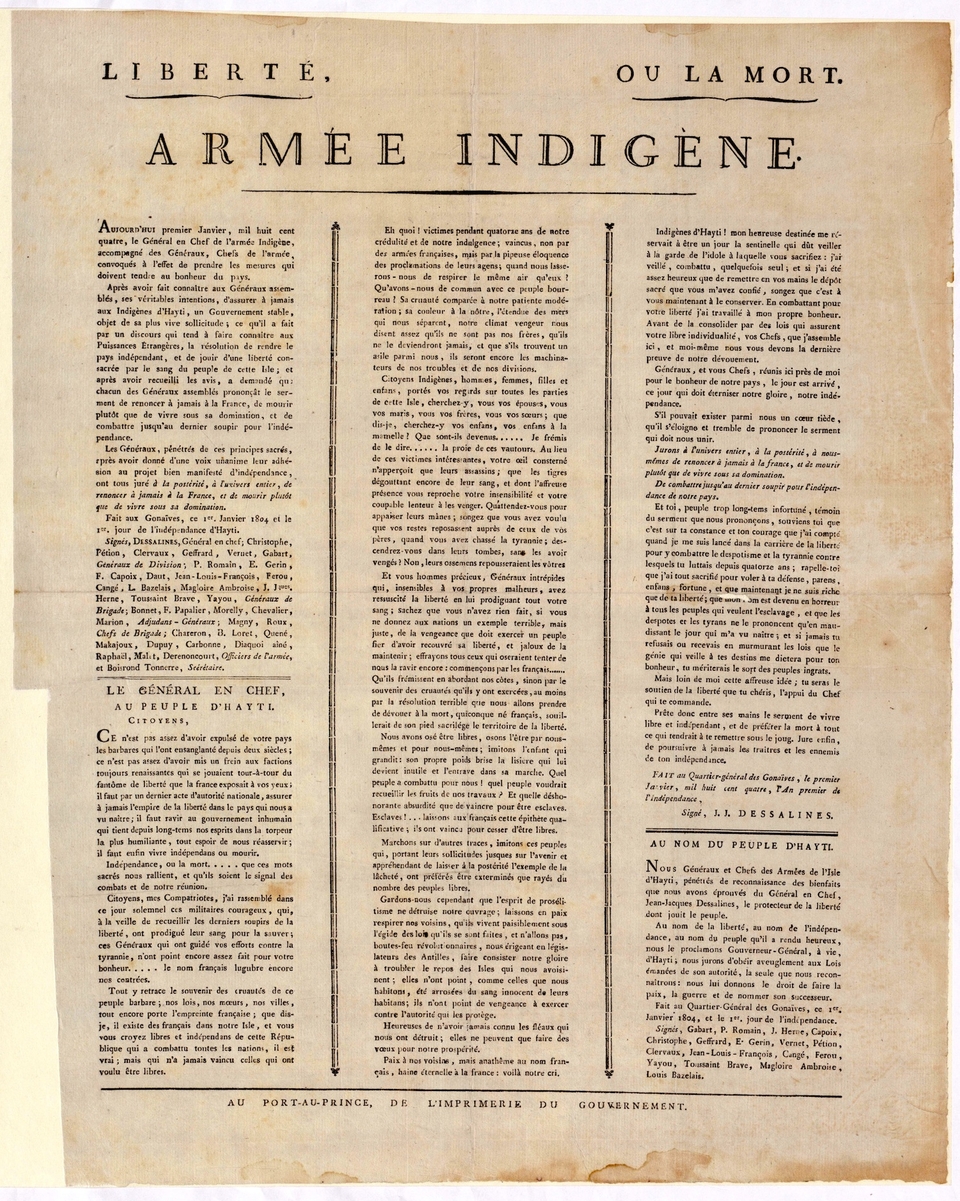"Jean-Jacques Dessalines and the Atlantic System: A Reappraisal" by Philippe R. Girard
Revered in Haiti as a founding father committed to his countrymen’s freedom and independence, decried by his white contemporaries as a bloodthirsty brute, Haitian revolutionary Jean-Jacques Dessalines was actually a multifaceted historical figure who borrowed much of his worldview and many of his policies from the colonial plantation system of the Atlantic world. In particular, archival findings in France, Britain, and the United States reveal that Dessalines encouraged France to arrest fellow black revolutionaries, was long ambivalent about advocating independence from France, and maintained close relations with some white Frenchmen even after the 1804 massacres. He conducted extensive diplomatic negotiations with his neighbors in an effort to maintain the trade links inherited from the colonial era, strove to preserve the integrity of the sugar plantations even though he had himself been a slave (probably of Toussaint Louverture’s son-in-law), enforced a strict feudal system among former slaves and tried to import African laborers, and was inspired by a multicultural environment that incorporated American and European as well as African elements. Dessalines was thus a complex character whose conduct was motivated by his economic, political, and diplomatic interests in addition to the racial and ideological factors that tend to dominate the historiography.











